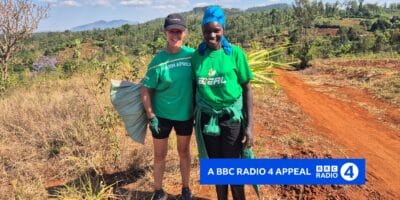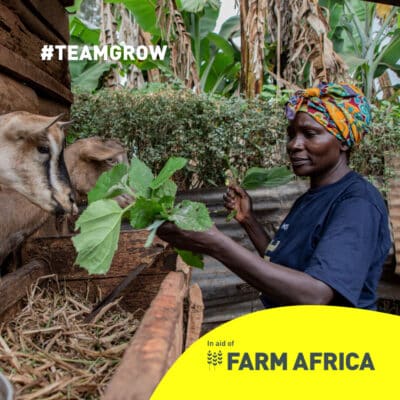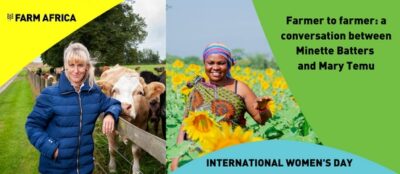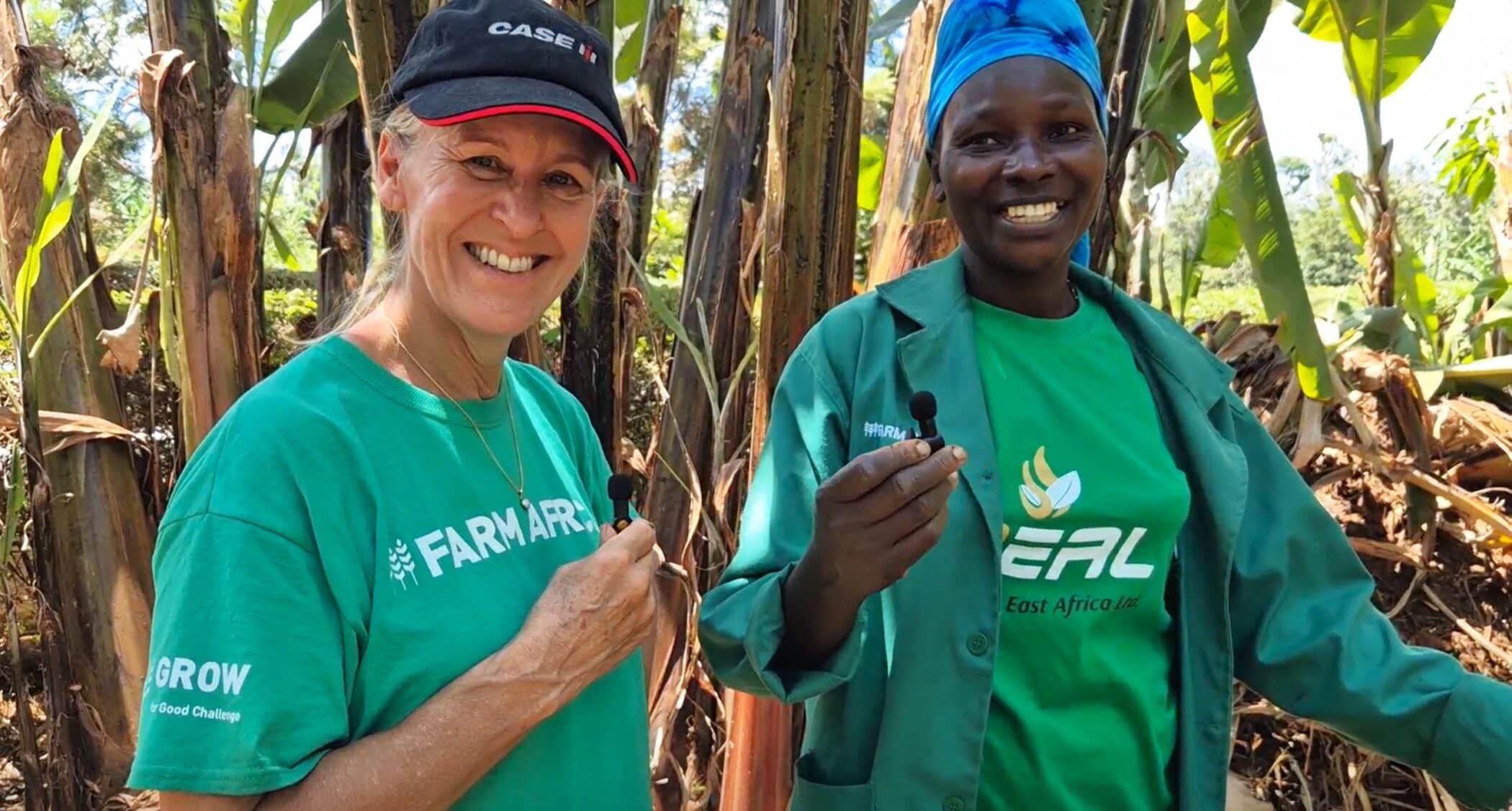Related Articles
Expert view
Kenya
15 April 2025
Meeting Juliet: a life-changing experience
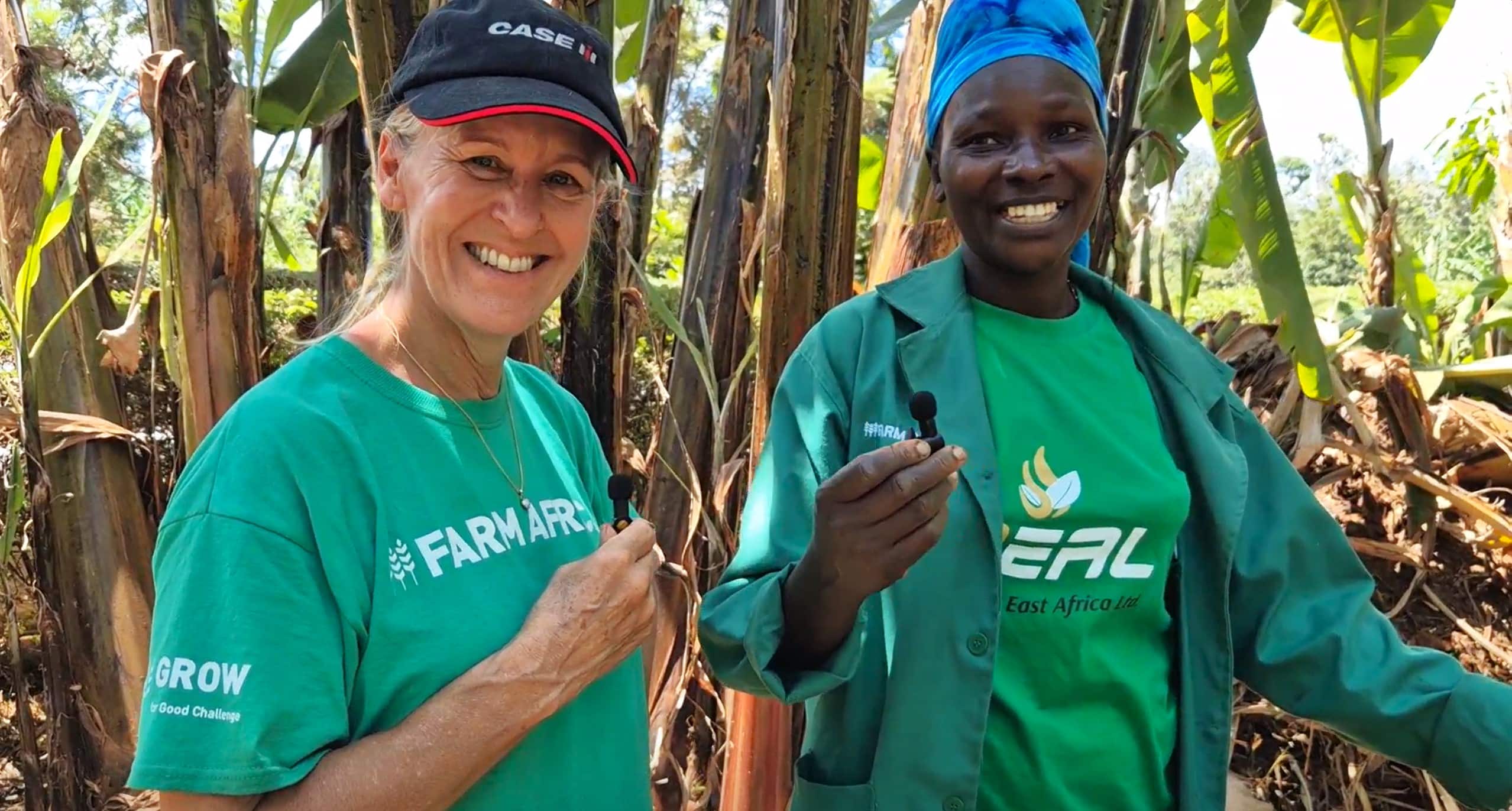
Baroness Minette Batters meeting Kenyan smallholder farmer Juliet Muthoni.
Farmer Baroness Minette Batters reflects on meeting Kenyan farmer Juliet, whose story she shared in the BBC Radio 4 appeal for Farm Africa.
For me, going to Kenya in October 2024 changed everything. I love Farm Africa and I’d done a lot previously: I’ve run in two marathons and I’ve been involved with a lot of events.
But nothing can beat going out there.
Nothing prepared me for going to Farm Africa’s offices in Nairobi and meeting a small team of people that is leading the engagement with thousands of farmers.

And it’s not just engaging at any one end. It is engaging right the way through the supply chain journey. From farm to fork, Farm Africa is there to help farmers.
Because they’re a small team, Farm Africa’s training of Village-based Advisors (VBAs), who are farmers themselves, is a game-changer. It is about local knowledge and local understanding.
The hand holding from the core team in Nairobi is there, but they’ve also got this network of lead farmers that is growing and delivering knowledge transfer and advice on what’s working and what’s not, and joining up opportunities.
What I saw was an operation that was punching so far above its weight.
Juliet is a farmer and VBA I met in Embu County, where the poverty is quite unbelievable to witness. I came back really empowered by her story. I worked on her farm, and it changed my life seeing how she farmed, the struggles she had faced and how Farm Africa had helped her turn her business around.
Juliet had got involved in the farming business back in 2020, when we were in lockdown. She had a small amount of land, but she just simply didn’t have the skills.
Working with Farm Africa, she is now farming in a regenerative and sustainable manner.
She learnt how to make her own compost. That means there is no rubbish left on the farm. She’s making the compost twice a week now and selling it.
Using any kitchen waste, she has set up her own wormery that is making fertiliser to go on to her crops. It’s creating a totally sustainable biological little farming business that is allowing her to produce food for herself and her family, but also allowing her to be profitable.
And of course, the better she’s farming, the more she’s mulching and composting, that is preparing for the rainy season and building resilience.
Before Farm Africa got involved, Juliet wasn’t able to do any of that, so she wasn’t able to make her business resilient, which is a fundamental part of farming in that part of Kenya, right on the equator.
Now she’s feeding herself. She’s selling. She’s profitable. That is allowing her to invest in her house.
Will you support more farmers in eastern Africa affected by climate change?
Donate nowAs a mum with two kids at university myself, I was really struck when her daughter said it’s so good to be able to phone up Mum when I’m away and she can send me money. As a parent, it’s one of the fundamentals that you want to be able to look after your children.
What better success story could you have, as a smallholder subsistence farmer, than being able to feed yourself, be profitable and educate your children to go out and achieve good jobs?
For Juliet, this has all come on the back of learning how to farm.
I was very impressed with how Juliet started, knowing nothing, unable to farm, to ending up not only farming and making a profit, but also with effectively a qualification in farming that meant she is able to give advice and benefit to others.
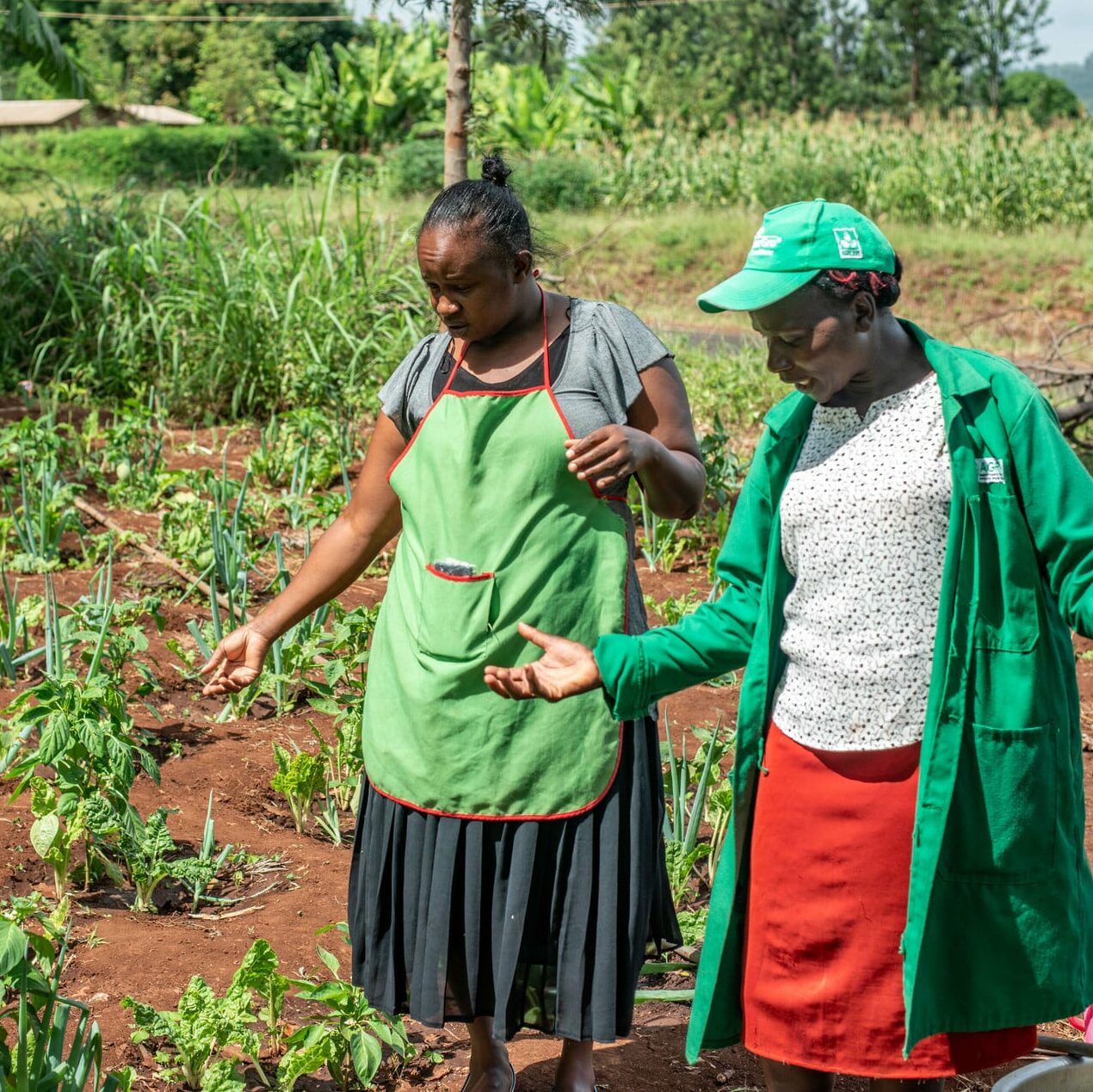
Grace (L) explains to Juliet (R) how she used advice from the regenerative agriculture project to plant vegetables at her farm in Embu, Kenya. Photo: Farm Africa / Arete
Through the Farm Africa project, as a VBA, she’s given advice to 250 other local farmers.
I saw how the other farmers look up to the VBAs to help them. All of us in life want ladders to climb, to have a better life, to be better educated. That’s what this is doing. It’s giving a ladder to climb to be in a better place at the end of it. What more can you ask for?
It’s been a huge success story and I’m enormously privileged to support this great charity.
Listen to Minette Batters’s BBC Radio 4 appeal for Farm Africa on the BBC website.
